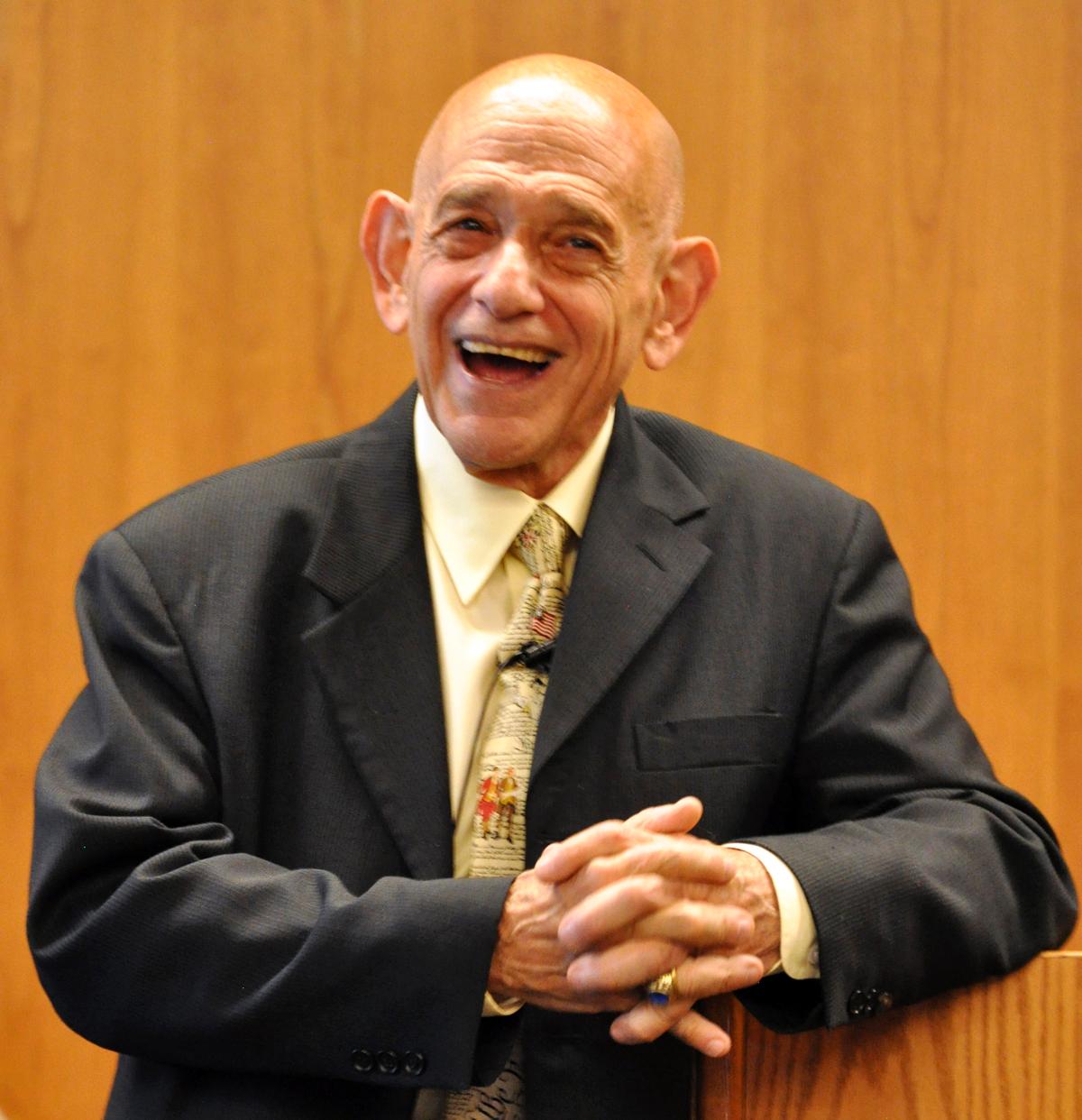Speaker welcomes guests with guns and pizza
Cato Institute’s board of directors Chairman Robert Levy, co-counsel in the lawsuit that overturned Washington, D.C.’s handgun ban by the Supreme Court, spoke at USU about his role in handgun law as well as the importance of maintaining the Second Amendment.
Levy’s speech was sponsored by USU’s chapter of Students for Liberty.
“We had to have D.C. residents who fervently believed in the right to defend themselves in their homes, not just mouth the words and say, ‘We think we would like a gun,'” Levy said.
Levy and two other members of Cato Institute counseled six plaintiffs in D.C. v. Heller, regarding the law, which barred any Washington, D.C. resident from owning a handgun that wasn’t registered after 1976. It also prohibited purchasing a gun within the city, or taking a long gun such as a shotgun or rifle out of the house or having it in the house loaded and assembled.
For this reason, Levy said, six Washington, D.C. residents with justifiable needs to be able to defend themselves were selected. However, five of the six were eventually thrown out for not having experienced any harm, therefore not having grounds to sue.
Heller, though, was a police officer who requested that the handgun he used for work be licensed for home use. He was denied, Levy said, and Heller then became the only plaintiff.
Levy said the law in Washington, D.C. was significant, because it targeted very specific elements of the Second Amendment. He said the most important issues was that Washington, D.C. is a federal enclave, so the courts would only have to define what the Second Amendment meant for the federal government and not worry about applying the amendment to the states.
“Attack the worst situation first and work in increments,” Levy said, of their reasoning to choose the Washington, D.C. law as a target, rather than Chicago’s almost identical law, which was overturned later when Chicago v. McDonnell applied the Second Amendment to state and local governments.
Levy said the Second Amendment clearly reads that all people have the right to own a firearm, however, he said that U.S. v. Miller, in 1939, “mystified the Second Amendment” by a vague opinion that was “riddled with ambiguity,” after Miller’s counsel backed out and left his side undefended.
“The rights shall not be infringed; that defines the right and secures the right,” Levy said. “Killers who aren’t deterred by laws against murder are very unlikely to be deterred by laws against carrying guns. Even if you could demonstrate that more gun laws lead to less crime, this is not just about policy. This is about the meaning of the Constitution and, in particular, the meaning of the Second Amendment.”
“If we decide that a ban like they had in D.C. is required for public safety, the remedy is go change the Constitution; we cannot simply ignore the constitutional provision and act like the document doesn’t exist,” he added.
He said five of the 10 amendments in the original Bill of Rights, including the second, use the term “the people” and mocked the idea that the First Amendment didn’t really apply to individuals but to groups — as some in favor of gun control have suggested.
“The reason you should value the Second Amendment is because the core basis of it is: Who do you trust more, ourselves or the government?” said Justin Hinh, Students For Liberty president.
After a 5-4 decision ruled the law unconstitutional, Levy said Justice Antonin Scalia wrote for the majority and said the Second Amendment protects an individual’s right to self defense, even if unconnected with militia service, and that Washington, D.C.’s ban on all kinds of firearms was unconstitutional.
He said the most effective protection of the Second Amendment will be lobbying for legislation rather than litigation in the court system. Since the Second Amendment has been defined on both federal and state levels, he said the main focus needs to be reinforcing gun rights through laws.
He said 49 states, Illinois being the only state not included, currently have concealed-carry laws in place, allowing people to carry guns with them at all times.
It is hard to give students suggestions as to how to know their Second Amendment rights because they are only now being defined, he said. There are indeed laws that need to be in place to limit people who are allowed to carry guns, he added.
“Even the most rabid gun rights advocate knows the right to bear arms doesn’t mean that a 70-year-old can have an automatic weapon in front of the White House when the President is giving a speech. Quite clearly there are some things that can be regulated,” he said.
He said he would encourage students to read up on current events so they know any developments made in the definition of the Second Amendment.
Hinh said he would also suggest people stay willing to stand up for themselves and their opinions of guns, so they can start spreading a less intimidating message about carrying firearms.
– bracken.allen@aggiemail.usu.edu

ROBERT LEVY, Cato Institute’s chairman of the board of directors spoke to students Tuesday about the Second Ammendment and the right to bear arms. DELAYNE LOCKE photo

